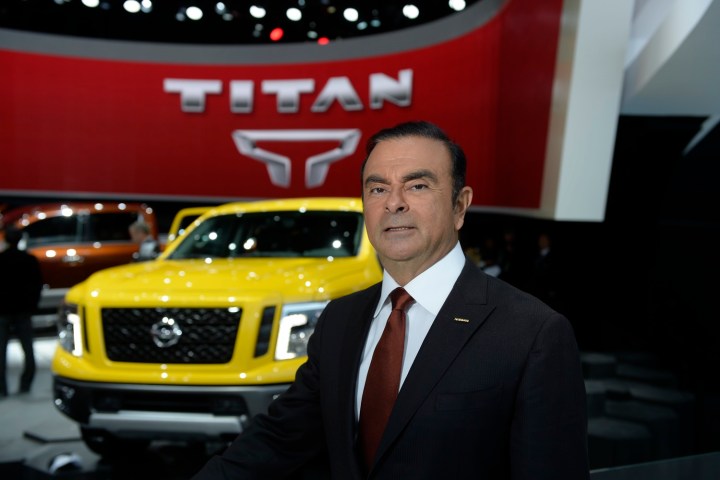
Ghosn, who joined Nissan in 1999 after starting out at Renault and became CEO of the Japanese automaker two years later, will retain his position as chairman of the Renault-Nissan Alliance, a statement released Thursday said. He will also remain CEO of Renault, as well as chairman of the French automaker, Nissan, and Mitsubishi, which the Alliance acquired last October. The change will allow Ghosn to take on more of an oversight role in the enlarged automotive conglomerate.
“As Nissan’s chairman, I will continue to supervise and guide the company, both independently and within the Renault-Nissan-Mitsubishi Alliance,” Ghosn said. “This planned change will also allow me to devote more time and energy to managing strategic and operational evolution and expansion of the Alliance and ensuring that all its members benefit from the competitive advantages that its scale will deliver.”
The alliance between Renault and Nissan is based on an interconnected share structure, which is why both automakers retain independent corporate structures alongside a joint board and executive team. Nissan purchased a controlling stake in Mitsubishi last year, after the smaller Japanese automaker was weakened by a fuel-efficiency cheating scandal.
New Nissan CEO Saikawa, who has been with the automaker since 1977, was elevated to the position of co-CEO alongside Ghosn when the Mitsubishi acquisition was completed. Prior to that, he was Nissan’s chief competitive officer. Saikawa also served on Renault’s board from 2006 to 2016, and is chairman of the Japanese Automobile Manufacturers Association, a lobbying group.
Ghosn steps down just as Nissan completes its Power 88 mid-term business plan, leaving Saikawa to draw up the next plan. With the takeover of Mitsubishi, the Renault-Nissan Alliance became the world’s fourth-largest automaker. Ghosn has said the companies will focus on achieving greater economies of scale, including in the area of electric cars, where the Alliance currently leads in global sales.


